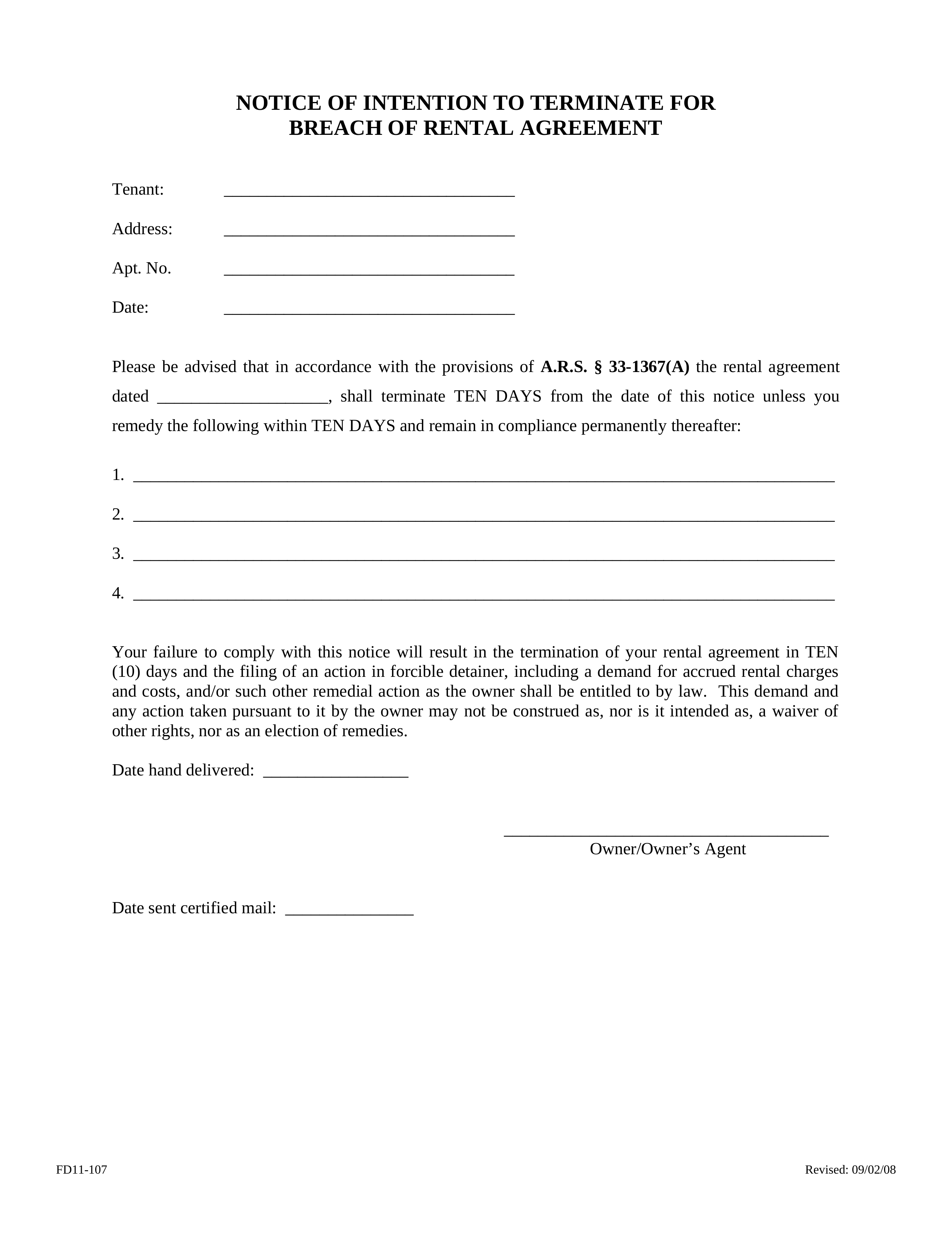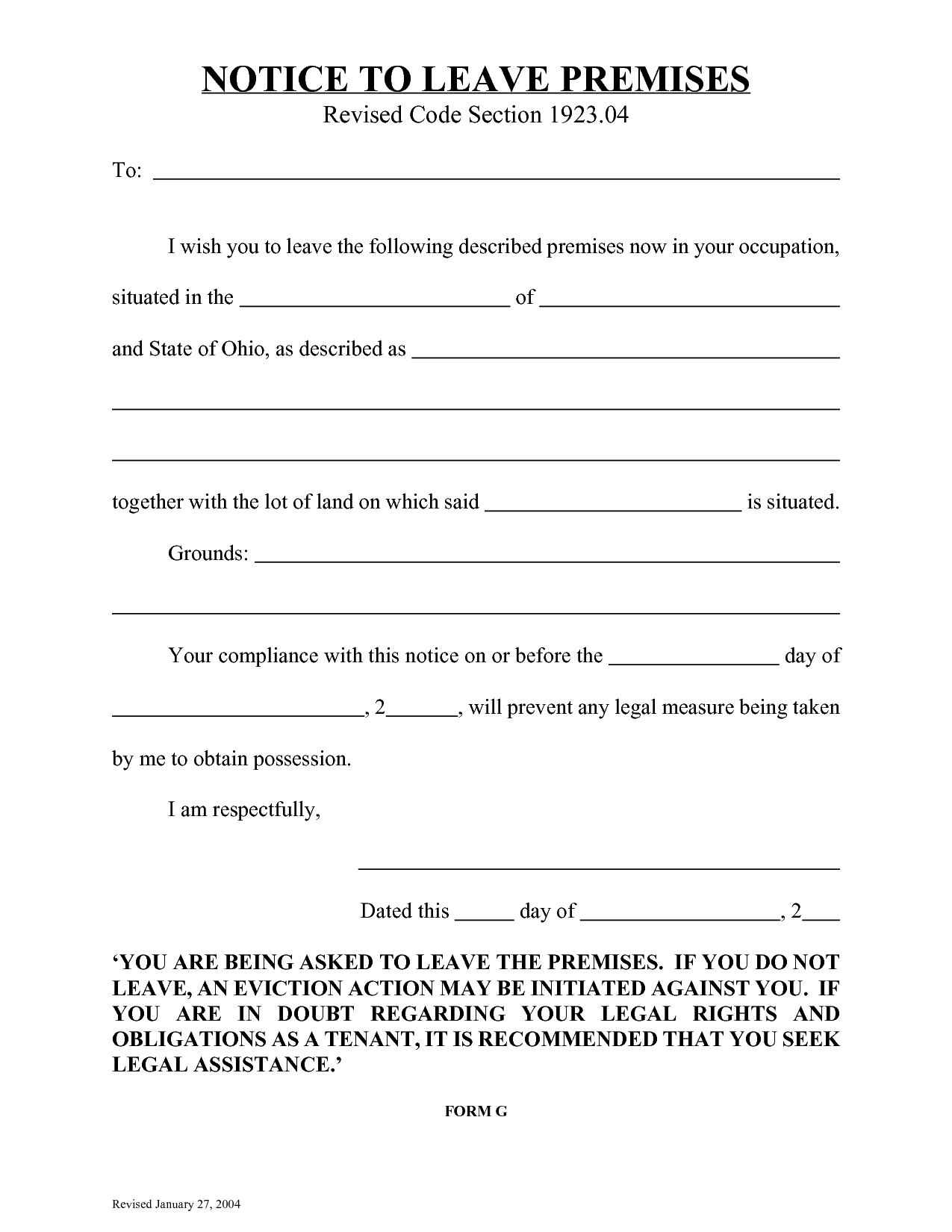
In the case of a joint demise to twoĭefendants, of whom one alone resided upon this premises, proof of the Or otherwise mark it so as to identify it, and they should also state the Security, sign their names on the back of the copy of the notice retained, The witnesses should then, for the sake of Possession, a copy may be served on him if he can be found, and another on Serve it upon the person in possession and where the tenant is not in Tenant personally, or to one of his family, at his usual place of abode,Īlthough the same be not upon the demised premises 2 Phil, Ev. Notice then in their presence, should deliver one of these copies to the He should show the copies, who, upon comparing them, and finding them alike,Īre to go with the person who is to serve the notice. Person, then procure one or more respectable persons for witnesses, to whom Serving the notice should make two copies of it, both signed by the proper Upon one only, will, however, be a good notice. The premises are in possession of two or more as joint-tenants or tenants inĬommon, the notice should be to all a notice addressed to all, and served The lessor has recognized the sub-tenant as his tenant. 330, and vide 14 East, 234 unless, perhaps, May have been underlet, or the whole of the premises may have been assigned Īdams on Ej. Given to the tenant, of the party serving the notice, notwithstanding a part To the party upon whom the notice should be served. Relation of landlord and tenant subsists, difficulties can seldom occur as As to the person to whom the notice should be given. But if the notice be given by an agent, it is sufficient if Him will be sufficient by relation to render the notice valid. Where, therefore, several personsĪre jointly interested in the premises, they all must join in the notice,Īnd if any of them be not a party at the time no subsequent ratification by Parties concerned at the time it is given. Time it is given to him, it is necessary that it should be such as he mayĪct upon with security, and should, therefore, be binding upon all the As the tenant is to act upon the notice at the It mustīe given by the person interested in the premises, or his agent properlyĪppointed. As to the person by whom the notice is to be given. It be really ambiguous or optional, it will be invalid. Care should be taken that the words of a notice be clear andĭecisive, without ambiguity, or giving an alternative to the tenant, for if Observed, as it prevents mistakes, and renders the evidence certain andĬorrect. Notices, and it is a precaution which should always, when possible, be But it is the general and safest practice to give written

So under an express agreement between the parties. Necessary that the notice should be in writing, except when required to be For the purpose of bringing an ejectment, it is not Must include all the premises under the same demise, for the landlordĬannot determine the tenancy as to part of the premises demised and continue Name, who has been authorized him, and directed to the tenant. Should be dated, signed by the landlord himself, or by some person in his To the time when the lease is to expire, it is proper to add, "or at theĮxpiration of the current year of your tenancy." 2 Esp. Of the year on which the lease commences. Premises ought to be particularly described, as being situate in the streetĪn city or place, or township and county,) and to deliver them to him on orīefore a day certain, generally, when the lease is for a year, the same day Possession to, quit the premises which he holds from the landlord, (which Should contain a request from the landlord to the tenant or person in What will amount to a waiver of it.ģ.- Sec. Premises leased, and to give possession of the same to him, the landlord, atĢ. A request from a landlord to his tenant, to quit the Such notice, and failure of the tenant to quit (leave), is a requirement to bring a lawsuit for unlawful detainer (often referred to as "eviction".) (See: notice, lease, unlawful detainer)Ĭollins Dictionary of Law © W.J.

Although state laws vary, generally the notice must be served personally on the tenant or posted in a prominent place like the front door with a copy sent by certified mail. If the tenant is month-to-month, a notice to quit without reference to default usually requires no reason. A notice to quit must contain certain information, such as: names of the persons to leave, whether their tenancy is by written or oral agreement, an amount of any financial delinquency and the period it covers, and to whom they should surrender the premises. the notice given by a landlord (owner) to a tenant) to leave the premises (quit) either by a certain date (usually 30 days) or to pay overdue rent or correct some other default (having pets, having caused damage, too many roommates, using the property for illegal purposes, etc.) within a short time (usually three days).


 0 kommentar(er)
0 kommentar(er)
